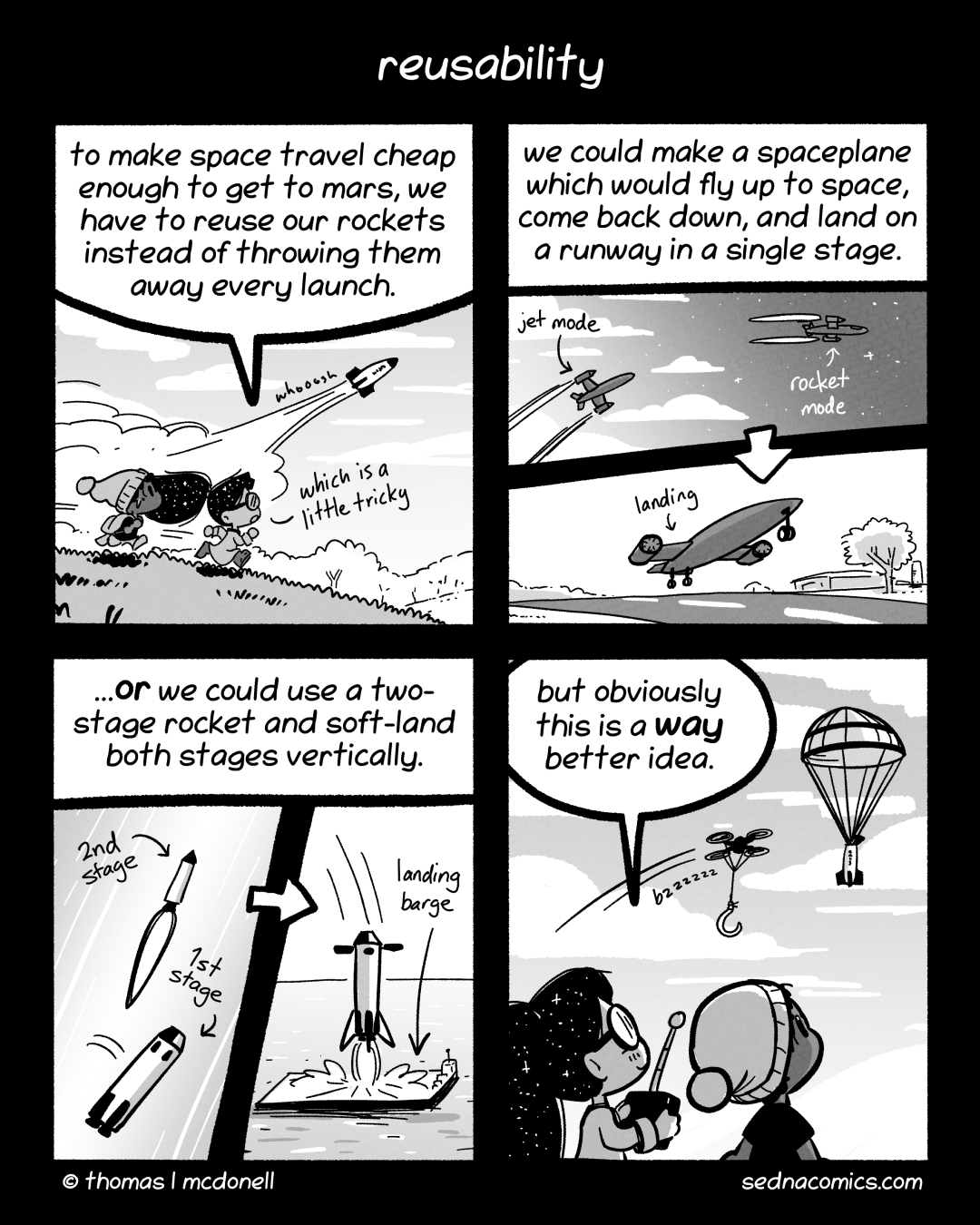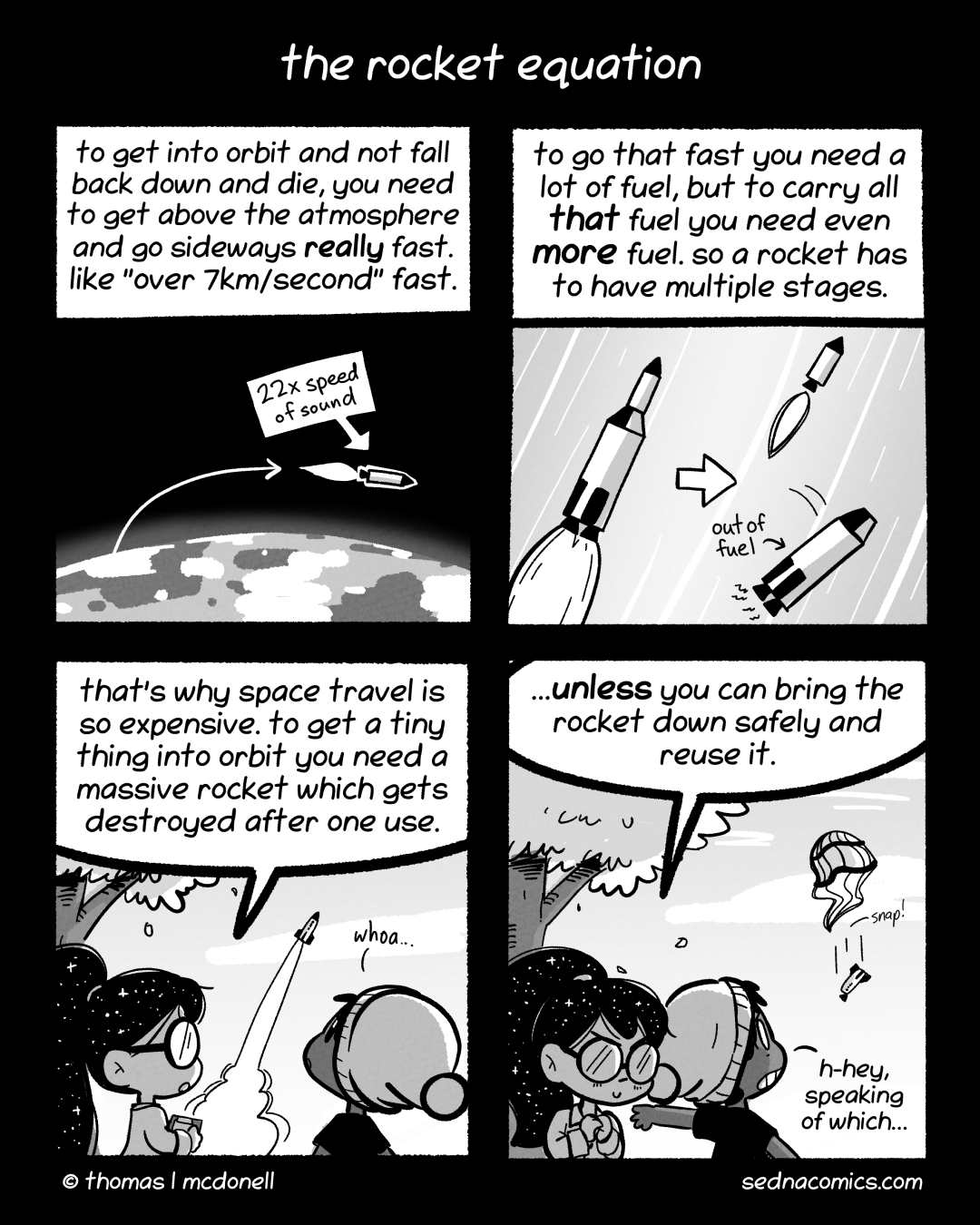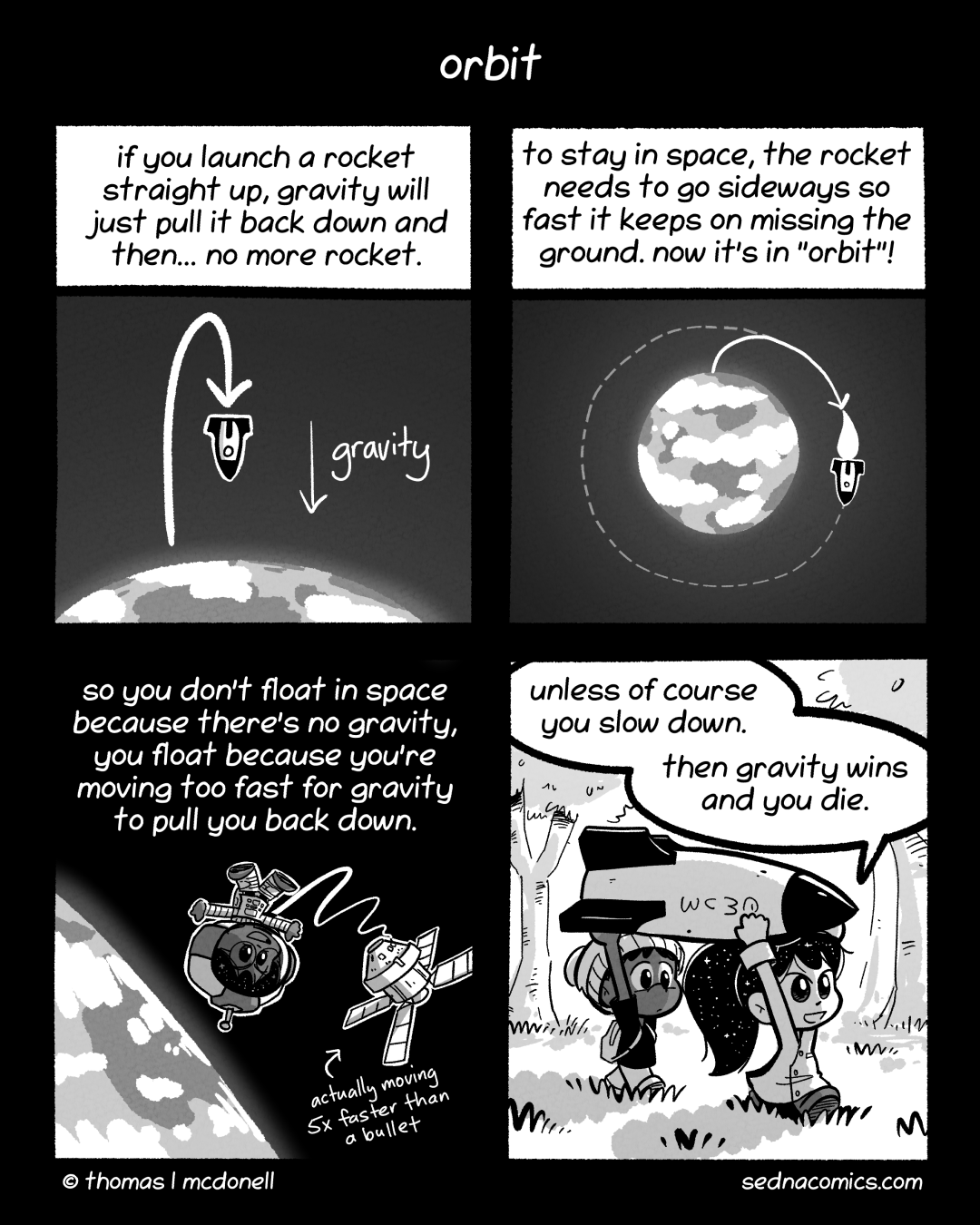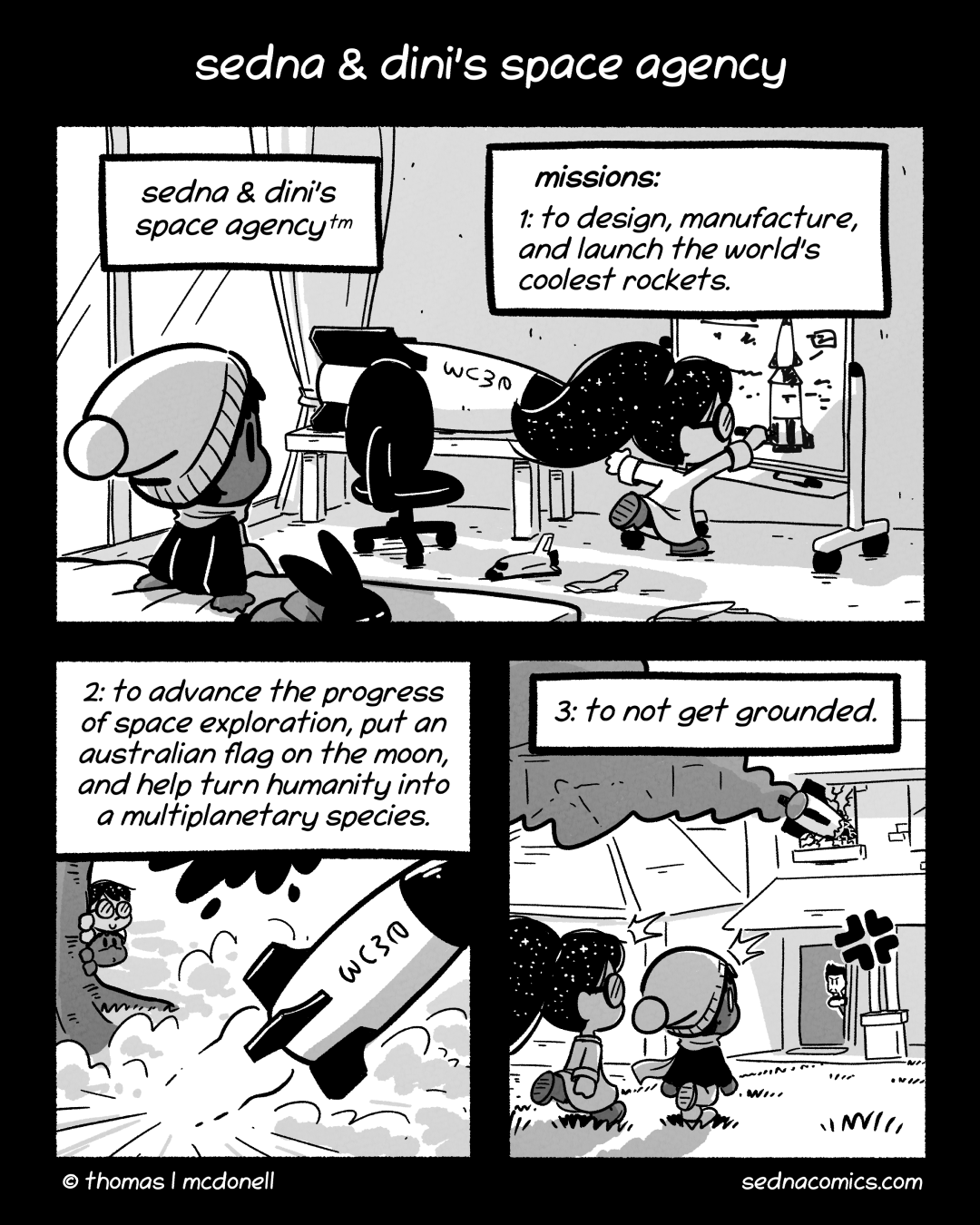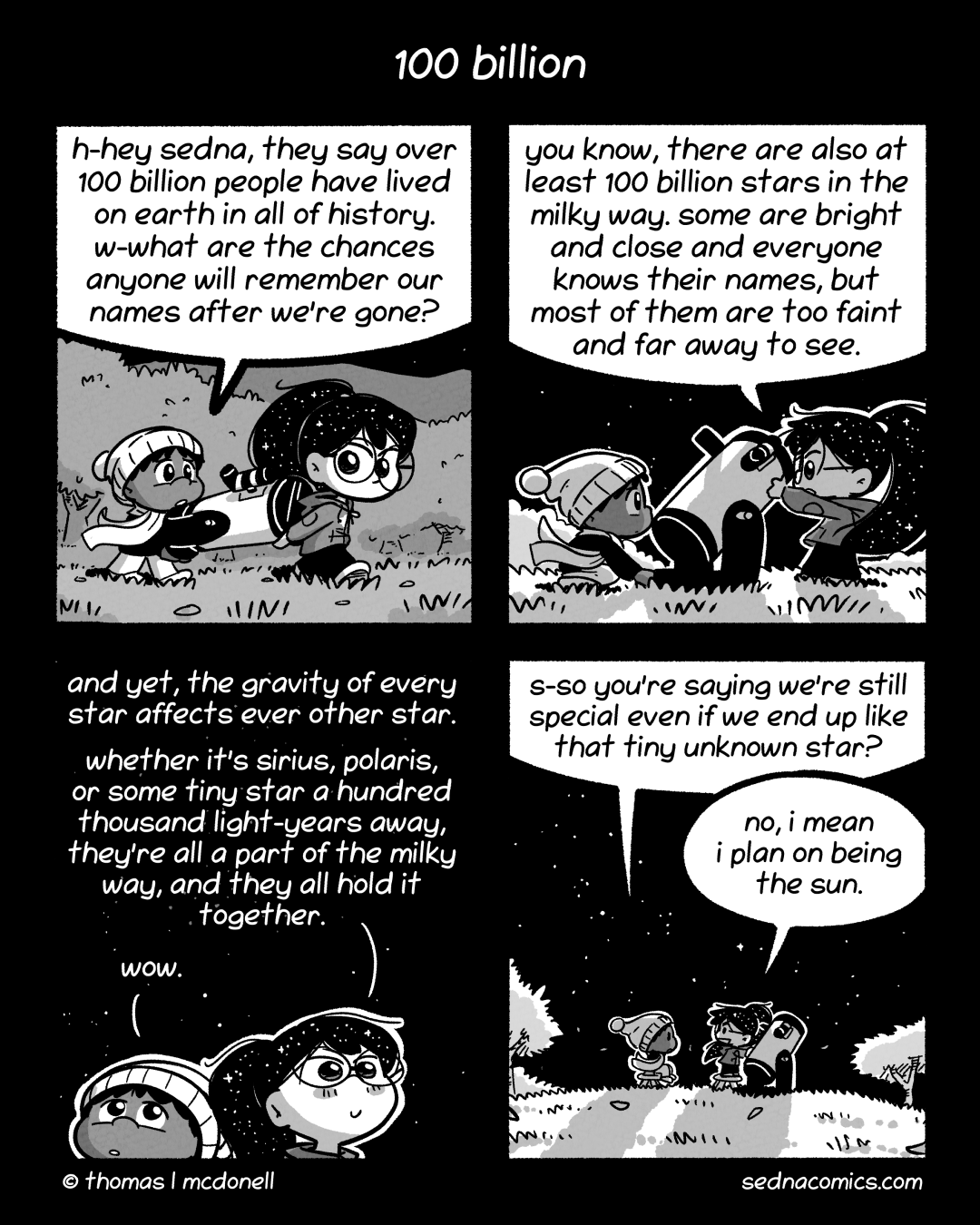sedna’s “idea face” never means anything good.
Posts tagged park
who is sedna’s mum?
i sure hope they have some really good car insurance.
sugar rocket
yes, you can make a rocket with nothing more than table sugar and fertiliser. makes sense if you think about it. sugar has a lot of energy, and potassium nitrate has oxygen, which are the main two ingredients you need for a big boom.
if you want to try this at home, maybe consider looking up some more detailed instructions online. don’t get your pyrotechnical advice from a comic strip, kids.
reusability
the hybrid jet/rocket spaceplane concept is being developed the british company ‘reaction engines’, a company who’ve been working on their ‘skylon’ spaceplane project for about the last 30 million years (so naturally i expect them to finish aaany day now).
the reusable two-stage rocket concept was pioneered by the american company ‘spacex’, who currently reuse the 1st stage of their ‘falcon 9’ rocket and are planning on reusing both stages on their upcoming ‘starship’ rocket. pretty much every other private space company is going this route. cuz you know, it actually works.
the ‘catch-the-rocket-in-midair’ concept sounds so insane you’d think i just made it up, but it’s actually the plan of the new zealand-based company ‘rocket lab’, who are eventually going to start catching their ‘electron’ rocket 1st stages with a helicopter. can’t wait to watch it.
of course, i could’ve also mentioned the space shuttle, but calling that “reusable” is about as generous as calling a potato chip a vegetable. “partially-somewhat-refurbishable” would be a more honest description.
the rocket equation
the rocket equation is the reason we don’t live in the star trek universe. because a rocket has to carry all its fuel, it grows exponentially the further you want it to go.
rocket that goes up a few hundred metres? size of a water bottle.
rocket that goes into orbit? size of a dinosaur.
rocket that goes to the moon and back? size of skyscraper.
if we lived on a smaller planet with weaker gravity (like mars), space travel would be relatively easy. if we lived on a larger planet with stronger gravity (like saturn), space travel would be impossible. instead we live on earth, where space travel is only just possible, but incredibly difficult.
orbit
despite what some hollywood movies where rockets fly up and miraculously start floating around tell you, almost all spaceships and satellites that stay in space are in an orbit. if you’re not orbiting a planet/moon/star you’re probably either flying away from it, or about to crash into it.
another way to think of this is spaceships don’t experience “zero gravity”, but “zero g-force”. right now you are experiencing 1g of g-force, because gravity is pushing you into the ground. if you jumped into the air you would feel 0g of g-force… until you hit the ground.
a spaceship in orbit never hits the ground, so it constantly experiences 0g. essentially it is falling… forever.
sedna & dini’s space agency
yay! rocket comics are back!
so for the next bunch of comics i’m going to attempt to explain rocket science in 4-panel-comic form. which should be a piece of cake, i mean it’s hardly brain surgery, right?
100 billion
boy i sure do seem to love trying to fit complex existential discussions into single tiny 4-panel comics.
teacher’s pet
gotta cover all the important stuff first.
fetch
you can never trust that girl when she’s wearing her lab coat.




